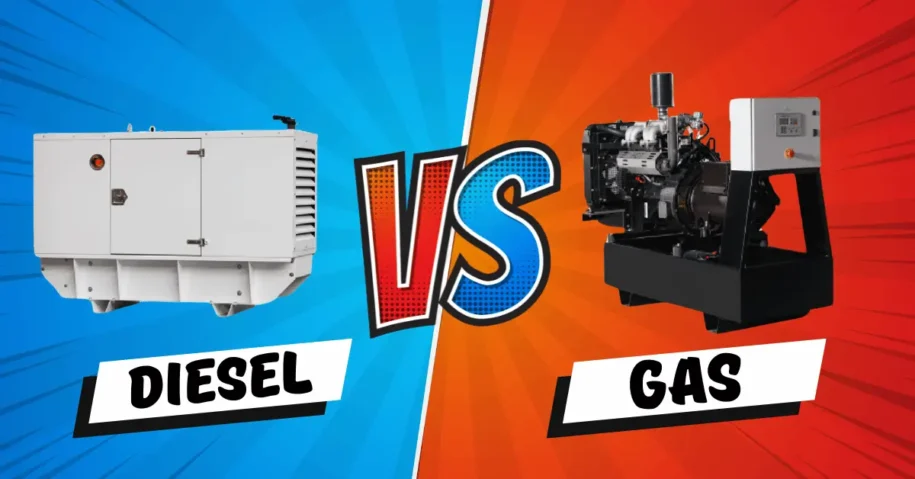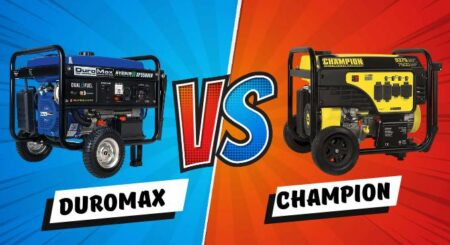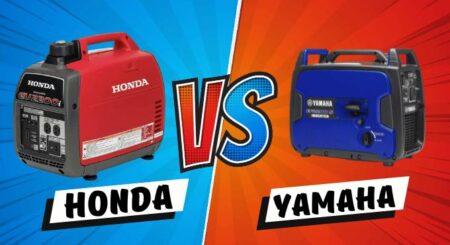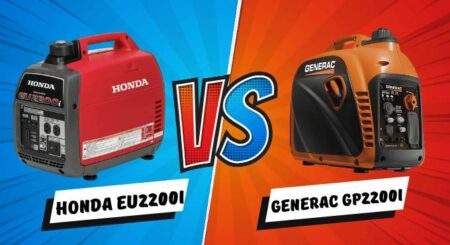Generators are essential machines that provide power when the primary source is unavailable. When choosing a generator, you will often decide between two main types: diesel and gas generator. Both have advantages and disadvantages; understanding these can help you make an informed decision based on your needs.
What is a Generator?
A generator is a machine that produces electricity by converting mechanical energy into electrical energy. This conversion process is crucial in emergencies, ensuring that you have a reliable power source when the main electricity supply is disrupted. Generators are used in various settings, from residential homes to extensive industrial facilities, providing essential power when needed.
Difference Between Diesel vs Gas Generators
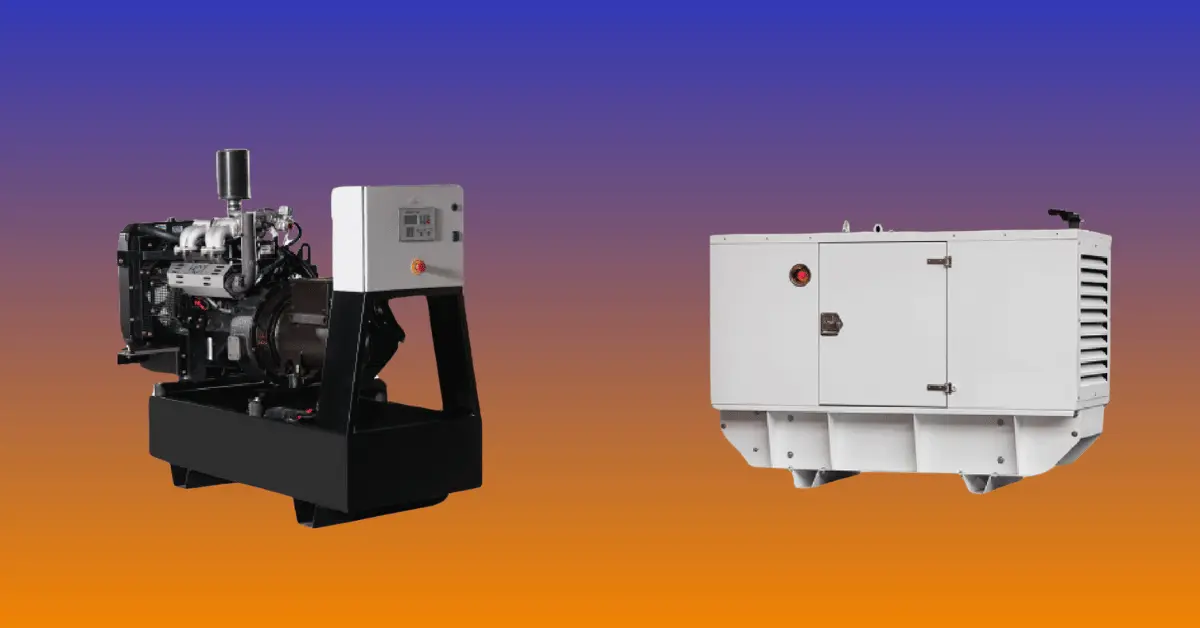
Diesel and gas generators differ in several key ways. Let’s explore these differences to understand which type might be best for you.
Fuel Efficiency
- Diesel Generator: Diesel generators are known for their high fuel efficiency. They consume less fuel while producing the same power as gas generators.
- Gas Generator: Gas generators are generally less fuel-efficient and use more fuel to generate the same power output.
Cost
- Diesel Generator: Typically more expensive to purchase initially. The higher upfront cost can be a significant investment.
- Gas Generator: Usually less expensive, making them a more budget-friendly option for many people.
Maintenance
- Diesel Generator: Requires less maintenance due to having fewer moving parts. This makes them more reliable and less likely to break down.
- Gas Generator: This requires more maintenance as more moving parts can wear out over time.
Noise Level
- Diesel Generator: Generally louder, which can be a concern in residential areas or noise-sensitive environments.
- Gas Generator: Quieter in operation, making them more suitable for residential neighborhoods.
Durability
- Diesel Generator: More durable and can run for more extended periods without issues. They are built to withstand more challenging conditions.
- Gas Generator: Less durable and may require more frequent repairs or replacements.
Advantages of Diesel Generators
Diesel generators have several benefits that make them a popular choice for many users:
- Fuel Efficiency: They use less fuel to generate power, which can save money over time.
- Durability: Built to last, diesel generators can handle continuous operation without frequent breakdowns.
- Maintenance: With fewer moving parts, they require less upkeep, making them easier to manage.
Disadvantages of Diesel Generators
However, diesel generators also come with some drawbacks:
- Cost: The initial purchase price is higher, which can be a barrier for some buyers.
- Noise: They are louder, which can be disruptive in quiet environments.
- Fuel Availability: Diesel fuel may only be readily available in some locations, particularly in remote areas.
Advantages of Gas Generators
Gas generators also have their own set of advantages:
- Cost: They are cheaper to purchase initially, making them accessible to more people.
- Noise Level: Quieter operation makes them ideal for residential use.
- Fuel Availability: Gasoline is widely available, making it easy to refuel the generator almost anywhere.
Disadvantages of Gas Generators
Gas generators, however, have some limitations:
- Fuel Efficiency: They consume more fuel, which can be costlier in the long run.
- Durability: Less durable, meaning they might need more frequent repairs.
- Maintenance: More moving parts require more maintenance to keep them running smoothly.
Which One Should You Choose?
Choosing between a diesel and a gas generator depends on several factors:
- Budget: If you are on a tight budget, a gas generator might be the better option due to its lower initial cost.
- Usage: A diesel generator’s durability and fuel efficiency might be more beneficial for frequent and prolonged use.
- Location: The quieter gas generator could be the better choice if you are in a noise-sensitive area.
Frequently Asked Questions
What Are The Fuel Efficiency Differences?
Diesel generators are typically more fuel-efficient, which can significantly save fuel costs over time.
Which Generator Has A Longer Lifespan?
Diesel generators generally have a longer lifespan, making them more durable and reliable in the long term.
Are Diesel Generators More Expensive?
Yes, diesel generators usually cost more upfront than gas generators, but they can offer long-term savings.
Which Is Quieter, Diesel Or Gas Generator?
Gas generators are quieter than diesel generators, making them better for noise-sensitive environments.
Conclusion
Both diesel and gas generators come with their own sets of pros and cons. Diesel generators are more fuel-efficient and durable but come at a higher cost and are noisier. Gas generators are cheaper and quieter but require more maintenance and are less fuel-efficient. Your choice should be based on your budget, how often you will use the generator, and where you plan to use it. Consider these factors carefully to choose the generator that best meets your needs.
Thank you for reading. We hope this article has helped you understand the differences between diesel and gas generators. Please share this information with anyone who might find it helpful!
See From us more Related:

